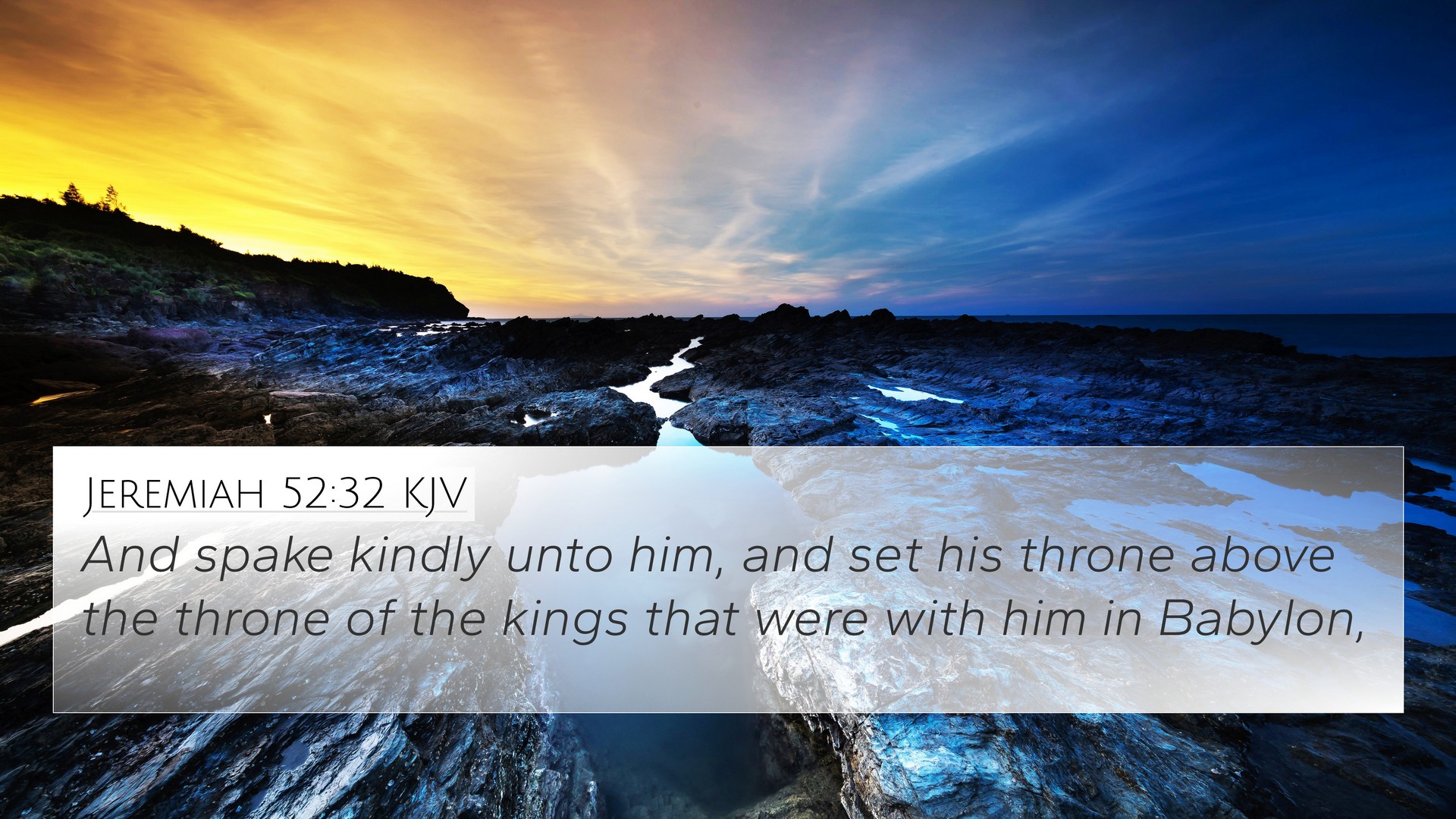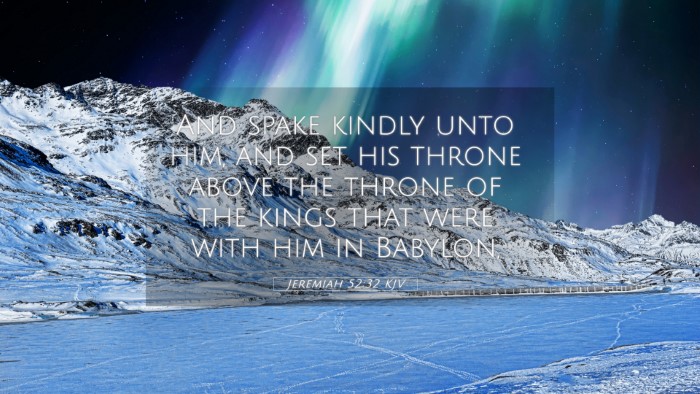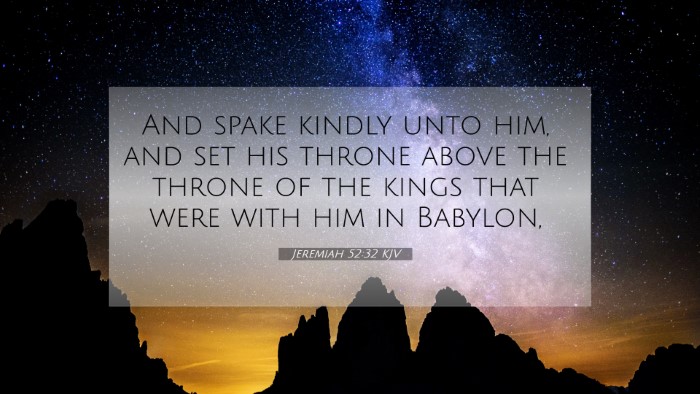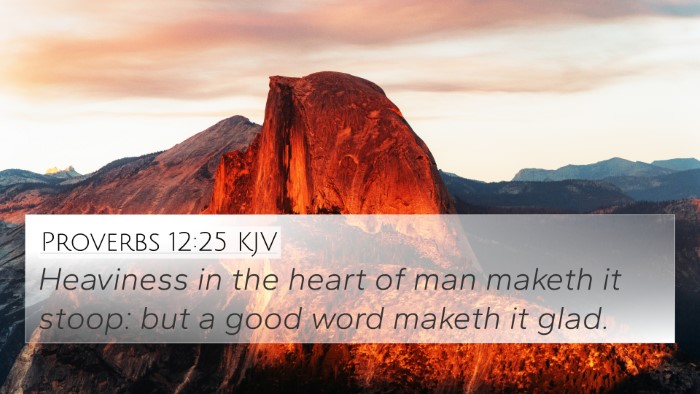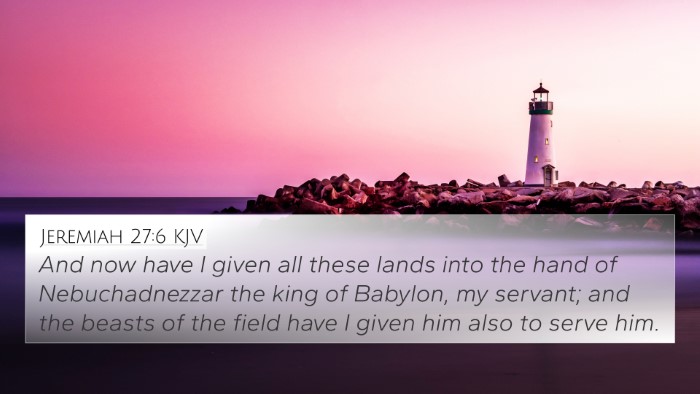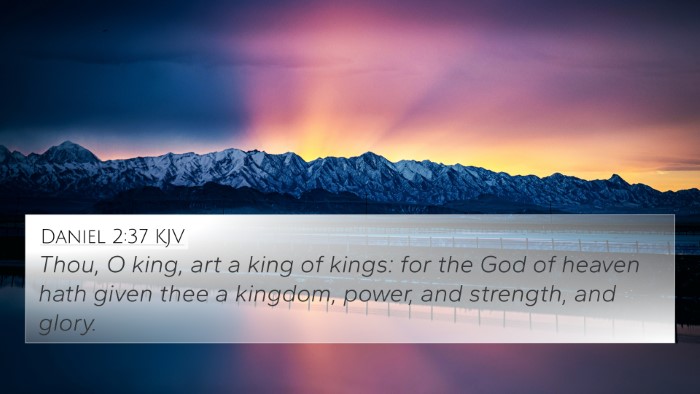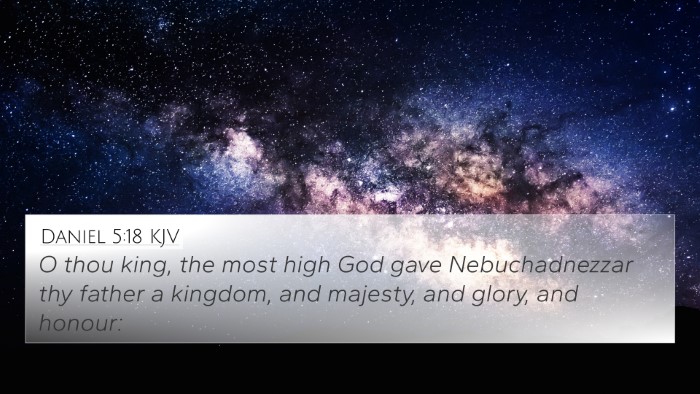Bible Verse Meaning: Jeremiah 52:32
Verse: Jeremiah 52:32 states, "And he spake kindly to him, and set his throne above the thrones of the kings that were with him in Babylon." This verse narrates an important moment in the life of Jehoiachin, the king of Judah.
Summary of Biblical Context
This passage comes towards the end of the Book of Jeremiah, which deals with the fall of Jerusalem and the subsequent exile of its people. This verse highlights the mercy extended to Jehoiachin by Evil-merodach, the king of Babylon, showcasing a significant shift from captivity to favor.
Commentary Insights
-
Matthew Henry’s Commentary:
Henry emphasizes the unexpected grace shown to Jehoiachin, suggesting this act is indicative of God's providence. While Israel experienced judgment, Henry underscores that mercy still existed, affirming that God can turn circumstances around even for those in captivity.
-
Albert Barnes’ Notes:
Barnes elaborates on the political implications of Jehoiachin's elevation above other kings in Babylon, interpreting it as a reward for his previous subservience. This reflects a theme of redemption and hope amidst despair in biblical narratives.
-
Adam Clarke's Commentary:
Clarke points out the psychological impact of this action on Jehoiachin, inferring that it serves as a reminder of God's mercy even in dire situations. He also comments on the sociopolitical dynamics at play, considering the alliances formed through such acts of kindness in a foreign land.
Key Themes and Biblical Connections
Jeremiah 52:32 illustrates themes of grace, restoration, and the sovereignty of God over nations. This moment connects to several other biblical themes and verses, providing deeper insights when cross-referenced.
-
Cross-Reference 1: 2 Kings 25:27-30 – This parallel verse discusses similar events concerning Jehoiachin's release and favor shown by the Babylonian king.
-
Cross-Reference 2: Isaiah 61:1-3 – The themes of restoration and liberation are echoed here, illustrating God's favor and the proclamation of deliverance.
-
Cross-Reference 3: Jeremiah 29:10-14 – A passage about the promise of return and hope for the exiles, similar to Jehoiachin's favorable turn of events in captivity.
-
Cross-Reference 4: Psalms 126:1-3 – The joy of restoration after a period of sorrow, highlighting the emotional landscape of returned favor.
-
Cross-Reference 5: Romans 8:28 – This verse summarizes the overarching principle that God works all things for good, resonating with Jehoiachin’s unexpected blessing.
-
Cross-Reference 6: Ephesians 2:4-7 – Highlights God’s mercy and grace, illustrating the New Testament parallels to the Old Testament examples of mercy.
-
Cross-Reference 7: Matthew 5:7 – “Blessed are the merciful, for they will be shown mercy,” a theme implicit in the kindness shown to Jehoiachin.
-
Cross-Reference 8: 1 Peter 5:10 – This verse safely captures the essence of restoration and calling back from suffering, connecting harmoniously with Jehoiachin's narrative.
-
Cross-Reference 9: Hebrews 10:23 – A reminder to hold onto hope and God's promises, paralleling Jehoiachin's situation where hope was restored.
-
Cross-Reference 10: Matthew 11:28-30 – An invitation to the weary reflecting God’s own grace and mercy, similar to what Jehoiachin experienced despite his past.
Conclusion
Jeremiah 52:32, viewed through the lenses of various commentaries, affirms that God’s mercy often comes unexpectedly and can elevate the downtrodden. The thematic connections with other scriptures provide rich material for those engaging in a comparative Bible verse analysis or exploring the intricate ways the Bible interconnects. Understanding such cross-references enhances one’s spiritual journey and illuminates the overarching narrative of God’s redemptive plan throughout Scriptures.
